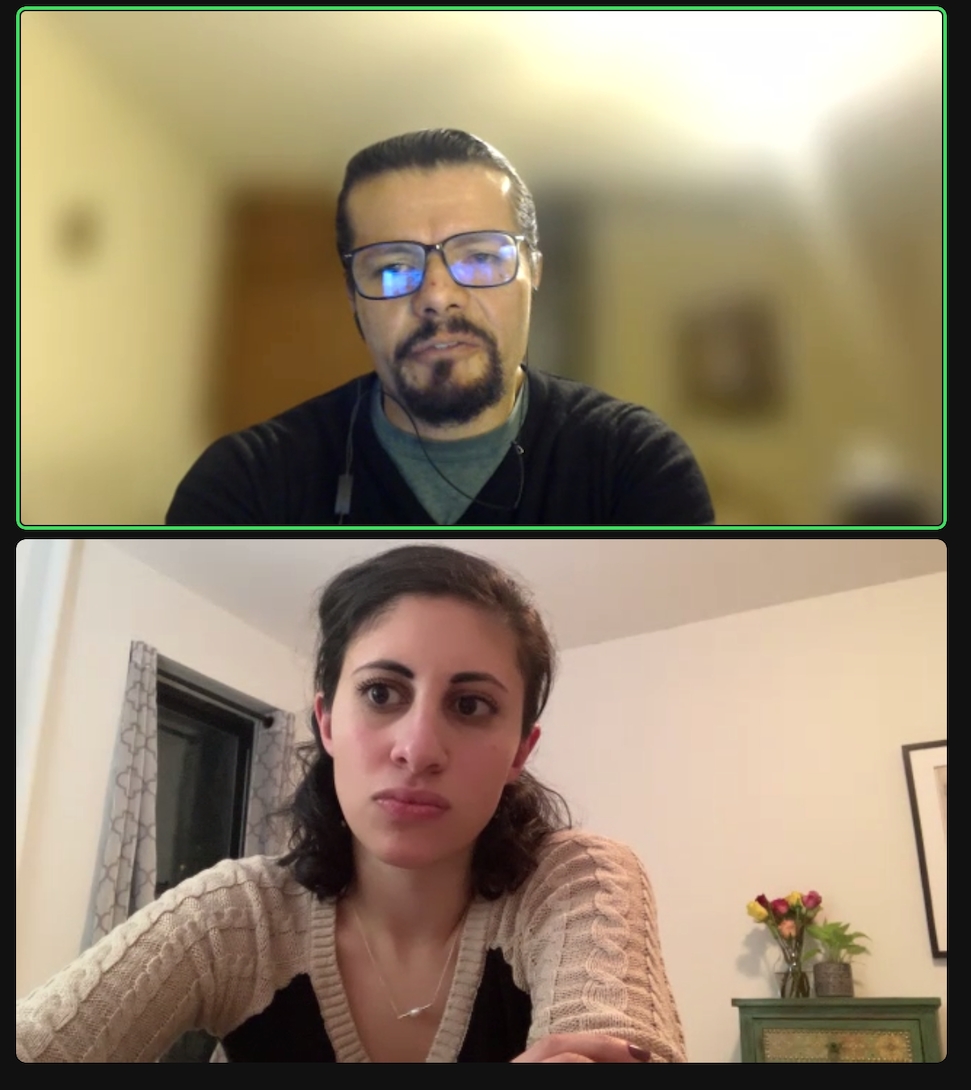On February 10, 2022, the Department of Performance Studies was joined by Afro-Peruvian dancer, musician, and researcher, Juan Felipe Miranda Medina to kick off our Spring Lecture Series. Moderated and curated by MA candidate, Leila Mire, Medina engaged in a conversation on decolonization and its limitations. His discussion “Fundamental Worries About ‘Decolonization is Not a Metaphor,” served as a precursor to his upcoming presentation, “If Decolonization is not a metaphor, what is it then?” to be given at the International Decolonization and Poststructuralism Conference on February 23rd. These works are in response to Eve Tuck and K. Wayne Yang’s popular 2012 publication, “Decolonization is not a Metaphor.”
In lieu of a land acknowledgment, I began by discussing the performativity, emptiness, and tendency for these statements to historicize people. I provided a link that offers insight into whose land we are occupying based on zip codes in addition to several resources participants might be drawn to based on how they engage with decolonization, decolonial, and/or postcolonial frameworks. Before the event, Medina reached out to inquire about them. He had not heard of them and wanted to learn more. Unfortunately, with work and classes, I was unable to connect. Looking back I am drawn to the multiple layers that simple exchange was reflective of.
After a short introduction, Juan presented a 30-minute PowerPoint presentation unpacking Tuck and Yang’s piece. Upon analyzing the work’s main points, he challenged specific arguments through a Latinidad, Peruvian perspective. Among his contestations were alternative readings of Plato, Audre Lorde, and Paulo Freire and a case study addressing Peruvian political history beginning with the fall of the Incan Empire leading into the recent elections in Peru.
The two of us briefly engaged in his research before opening up the floor to audience questions and comments. One of the first questions asked was whether or not applying Tuck and Yang’s argument to a Latin American context was useful given they have non-parallels. Medina explained that he comes from Latin America, and in Latin America, this work is often applied despite the non-parallels that may exist. I imagine this is largely due to the unequal distribution of weight or value placed on texts from the geographical area widely regarded as the “west.”
The proceeding questions and comments followed a similar trend leading to several takeaways. In a fascinating development, the discussion was illustrative of a kind of case study in and of itself. Limitations exist within decolonization conversation and without heeding to that point we are doing a disservice to the very project itself and instead are actively aligning ourselves with a colonialist project that reinforces hierarchies with slightly altered names. Decolonization needs to be treated as an additive project, always open to dialogue, and refutation in language, practice, and theorization. By insisting on “decolonizing something” we must be open to the fact that colonization has manifested itself differently around the globe. The sheer range of reactions in the commentary that ensued demonstrate how important these conversations are and how damaging universalizing a movement agenda can be, especially when unequal weight is placed across communities. It is our duty to take ample time and consideration while doing the work. Unlike my failure to engage with Juan on the links I intended to use, we must take the time and “make the time” to engage with decolonization conversations thereby challenging the linearity and hierarchy of time itself lest we fall prey to another movement whose name is neoliberalized into the oblivion of language rendered effectually impotent.
Story by Leila Mire.
